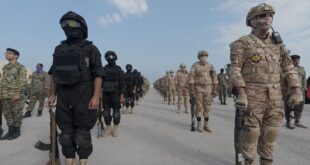GENEVAÂ – Iraqi hospitals remain unable to cope with mass casualties and many Iraqis still die due to ill-equipped centers, despite a drop in violence in some areas, the International Committee of the Red Cross said on Tuesday.
Many patients who could have been saved die in overwhelmed emergency rooms, which also lack qualified staff, said Pascal Olle, the ICRC’s health program coordinator for Iraq.
Iraq’s health care system was already fragile after years of international sanctions and wars with its neighbors. It has deteriorated further since the U.S. invasion in 2003, Olle said in an interview posted on the agency’s site ww.icrc.org.
“It is shocking to see how Iraqis today lack the most essential needs in terms of health services,” he said.
“Many patients that reach hospitals could and should be saved. However, this is not always the case, as emergency rooms and operation theatres are often not able to cope with the number of casualties,” he added.
Olle said many health professionals have left Iraq in a “considerable brain drain at a time when the country needed them the most”.
Along with the overdue rehabilitation of Iraq’s creaking health infrastructure, providing more training for medical staff should be a priority, according to the French pharmacologist.
Attacks across Iraq have fallen 60 percent since last June, U.S. and Iraqi officials say. ICRC spokeswoman Dorothea Krimitsas said that while security had improved in some areas, it remained very poor in others or had even deteriorated.
The humanitarian agency voiced concern at the rising civilian death toll after bombings blamed on female suicide bombers struck two Baghdad pet markets on February 1, killing 72 people and wounding 150.
Iraq is its largest operation worldwide with an annual budget of 107 million Swiss francs ($98 million). It deploys nearly 600 staff in the country, including 72 expatriates who also visit prisoners and work on water and sanitation projects.
Olle said authorities were improving health services, but limited resources and insecurity prevented much headway.
“It is by no means possible to say that the ICRC is able to meet all of the needs. Working in Iraq today is still dangerous as the context becomes more and more unstable and unpredictable.
“Like many other Iraqis, medical doctors, surgeons and nurses are subjected to threats, security risks to themselves and their families, kidnappings and killings,” he said.
 Eurasia Press & News
Eurasia Press & News



